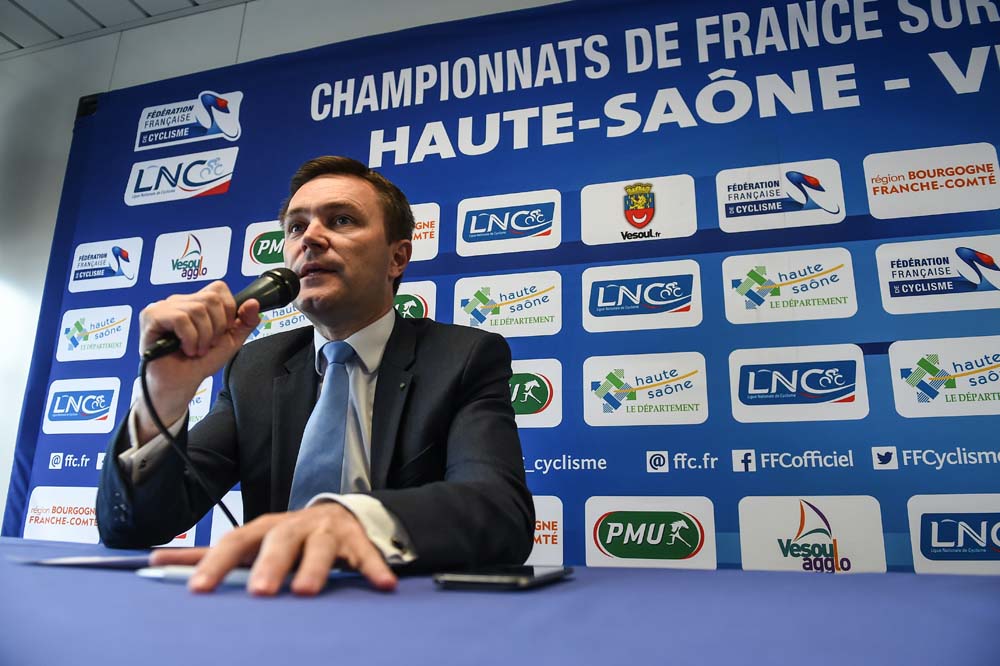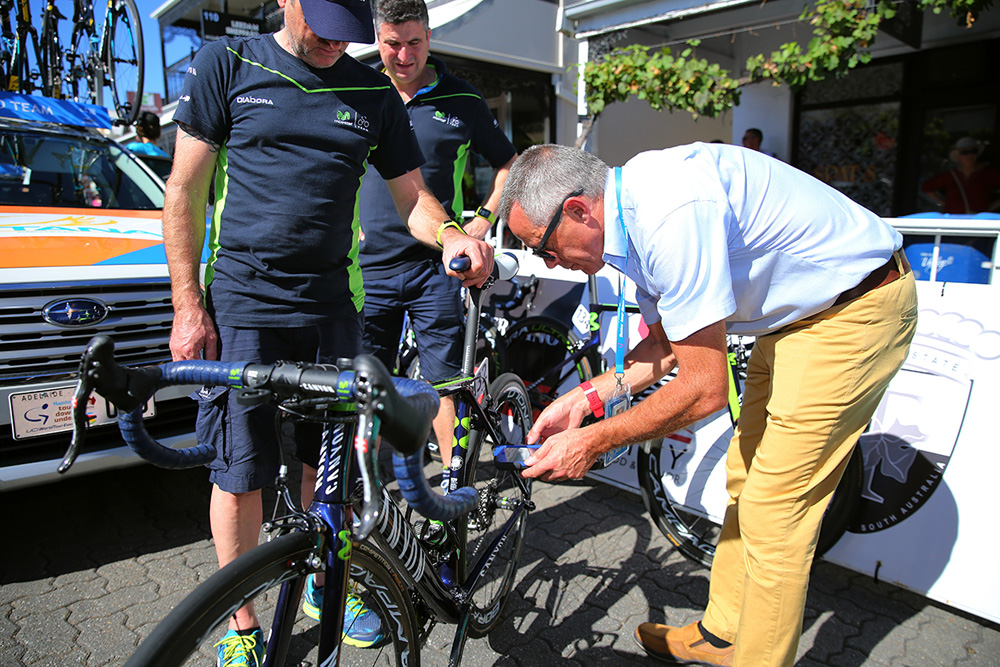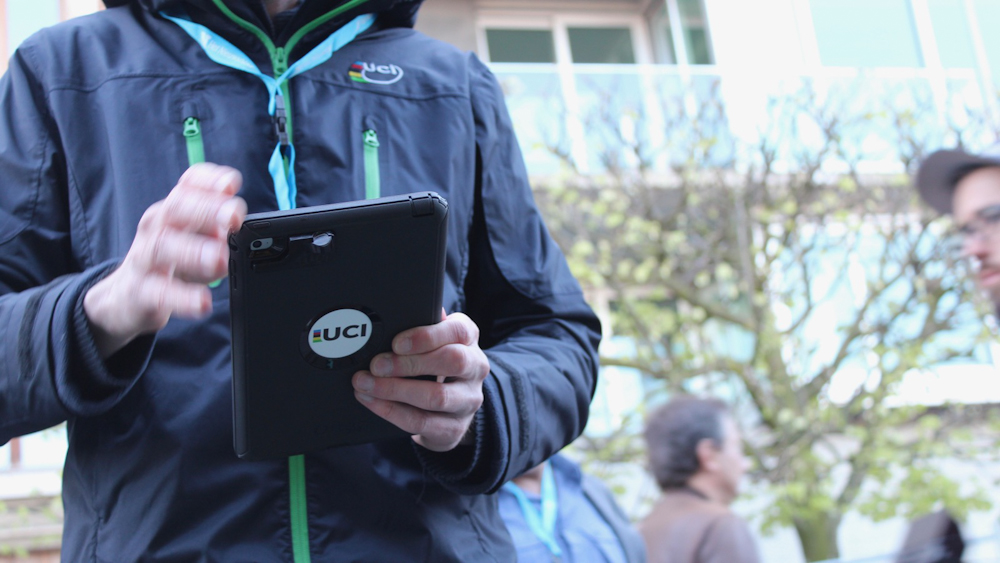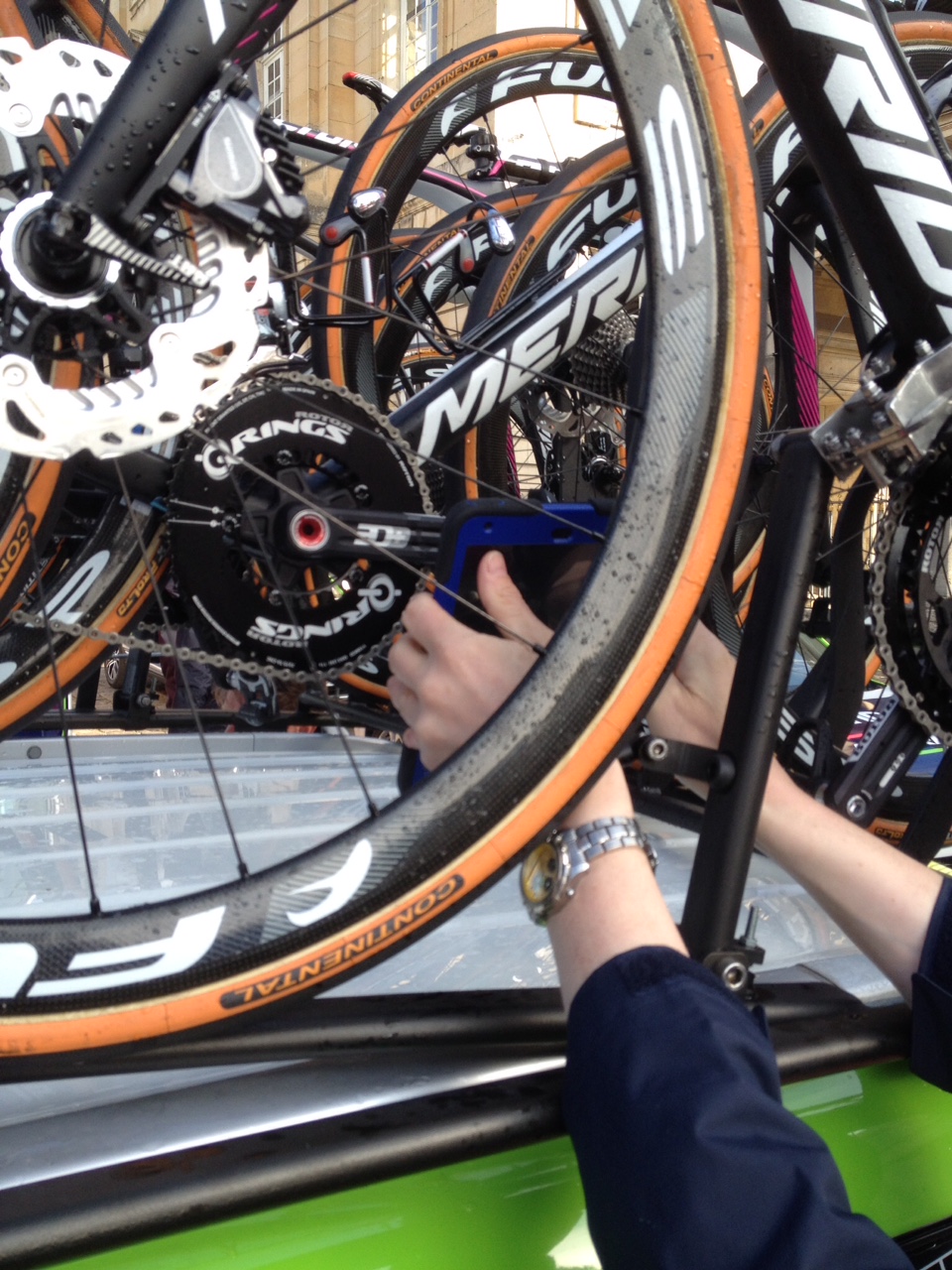Lappartient wants to remove mechanical doping as a 'hot topic' in cycling
New UCI president says tighter controls will be announced at the end of January





New UCI President David Lappartient has promised to bring mechanical doping's time as a hot topic in cycling to an end. Speaking with La Gazzetta dello Sport, Lappartient promised tighter controls to remove suspicions that the UCI is not up to the task of rooting out possible fraud.
"We don't want technological fraud to continue as a hot topic," Lappartient told the newspaper. "An investigation has recently been opened in France. There hasn't been a lot of trust in the UCI's strategy, and that generated suspicions. With tighter, more efficient controls we can protect the riders and their image."
Belgian U23 cyclo-cross rider Femke Van den Driessche is the only athlete to have been sanctioned by the UCI for mechanical doping to date, and she was handed a six-year ban after a motor was discovered in one of her bikes at the 2016 UCI Cyclo-cross World Championships.
In July of this year, a 53-year-old amateur rider was caught using a motor at a race near Brescia in Italy, while a 43-year-old French amateur was found to have used a motor in a race in the Dordogne last month.
Read more:
- 139 mechanical doping checks carried out at Omloop Het Nieuwsblad
- UCI continue checks for mechanical doping at Tirreno-Adriatico - News Shorts
- UCI checks all Tirreno-Adriatico time trial bikes for mechanical doping
- UCI check ten teams for mechanical doping at Paris-Roubaix
As yet, there have been no confirmed cases of mechanical doping at the professional level on the road, and Lappartient downplayed the idea that cheats might already be several steps ahead of the testers.
Former US pro Phil Gaimon recently highlighted the issue when a passage in his book Draft Animals that discussed previous allegations against Fabian Cancellara gained traction on social media. Cancellara has consistently denied the accusations.
The latest race content, interviews, features, reviews and expert buying guides, direct to your inbox!
Three-time Tour de France winner Greg Lemond and his wife, Kathy, have been critical of the UCI's attempts to detect mechanical doping. Greg Lemond told Cyclingnews in 2016 that heat guns or thermal cameras are the best way to detect hidden motors in races. However, the UCI has previously been critical of the effectiveness of the devices.
They Lemonds were two key interviewees on the CBS 60 Minutes investigation that aired in January and featured claims that motors had been used in bikes at the Tour de France.
The UCI currently uses an expensive tablet device to detect the 'magnetic flux density' of motors, but in the lead-in to the UCI election in September, a report by France Télévisions and Il Corriere della Sera demonstrated the apparent ineffectiveness of the UCI's current, tablet-based method of testing for mechanical doping.
In an interview with Belgian broadcaster RTBF, Lappartient said that improving the UCI's measures against mechanical doping – or technological fraud – was one of his chief objectives as president. Now he appears ready to make good on that promise.
"We'll announce a new strategy on January 30,” Lappartient told La Gazzetta. "We're working with the help of [Jean-Christophe] Peraud and Bob Stapleton. I can reveal that the budget has increased and that we'll use a mix of deterrents: tablet, x-ray, thermal cameras and even dismantling bikes.
"There'll be more people involved,” Lappartient said. "And we'll help the national federations fight the problem, too."
- Mechanical doping inventor says UCI obstructed police attempts to find cheaters at this year's Tour de France - October 13, 2016
- Mechanical doping inventor promises major revelation in January - December 16, 2016
- CBS 60 Minutes investigates mechanical doping in professional cycling - December 28, 2016
- Tour de France to continue thermal imaging checks for mechanical doping - January 17, 2017
- CBS 60 minutes to broadcast investigation into mechanical doping on Sunday - January 27, 2017
- Claims of mechanical doping at the Tour de France in CBS 60 Minutes investigation - January 30, 2017
- Bruyneel blasts LeMond for 'obsession' with Armstrong and mechanical doping - February 8, 2017
- 53-year-old amateur rider caught using hidden motor at Italian race - July 30, 2017
- Italian amateur denies using mechanical doping - July 31, 2017
- Report: Four ways to hide motor doping in a race bike - August 1, 2017
- Doubts raised over effectiveness of UCI tests for mechanical doping - September 3, 2017
- UCI's mechanical doping tests called into question - Video - September 4, 2017
- UCI defends mechanical doping testing procedure - September 4, 2017
- French veteran rider reportedly caught using mechanical doping - October 2, 2017
- French veteran racer defends his use of mechanical doping - October 3, 2017
- Madiot: Lappartient must follow through on mechanical doping promises - October 3, 2017
- Lappartient: I need to be sure there's no mechanical doping - October 20, 2017
- Lappartient pledges more stringent testing against mechanical doping - November 7, 2017
- Gaimon calls Cancellara mechanical doping accusations a 'red herring' - November 8, 2017
- UCI to investigate Gaimon's Cancellara mechanical doping accusations - November 9, 2017
